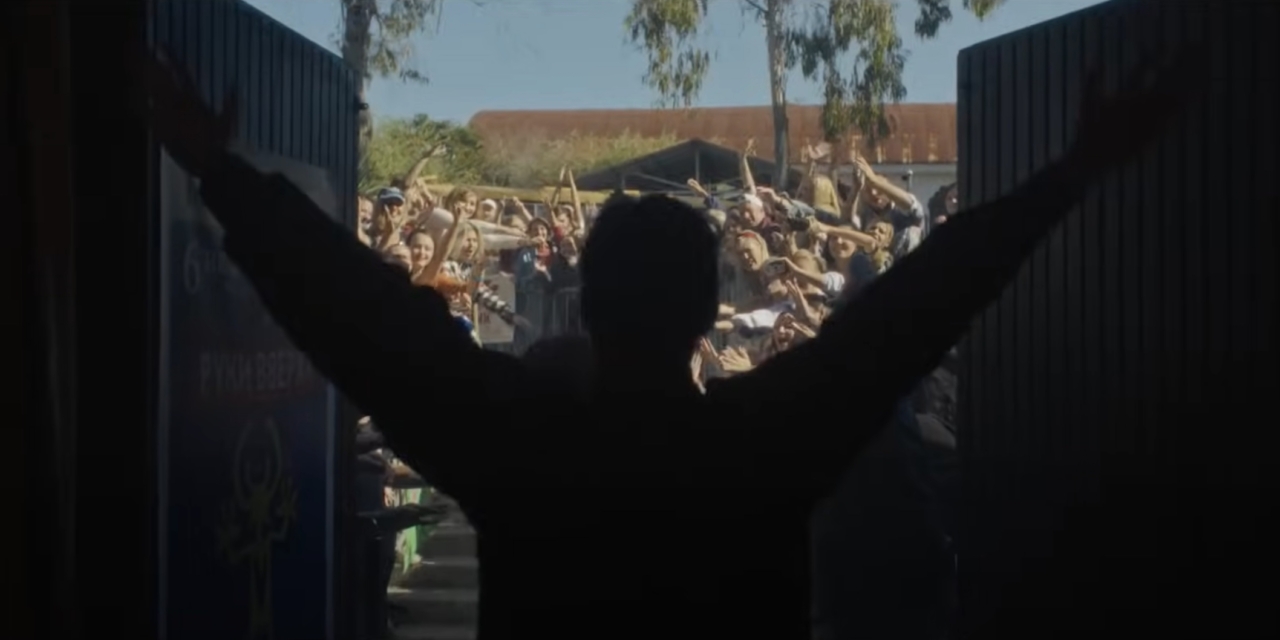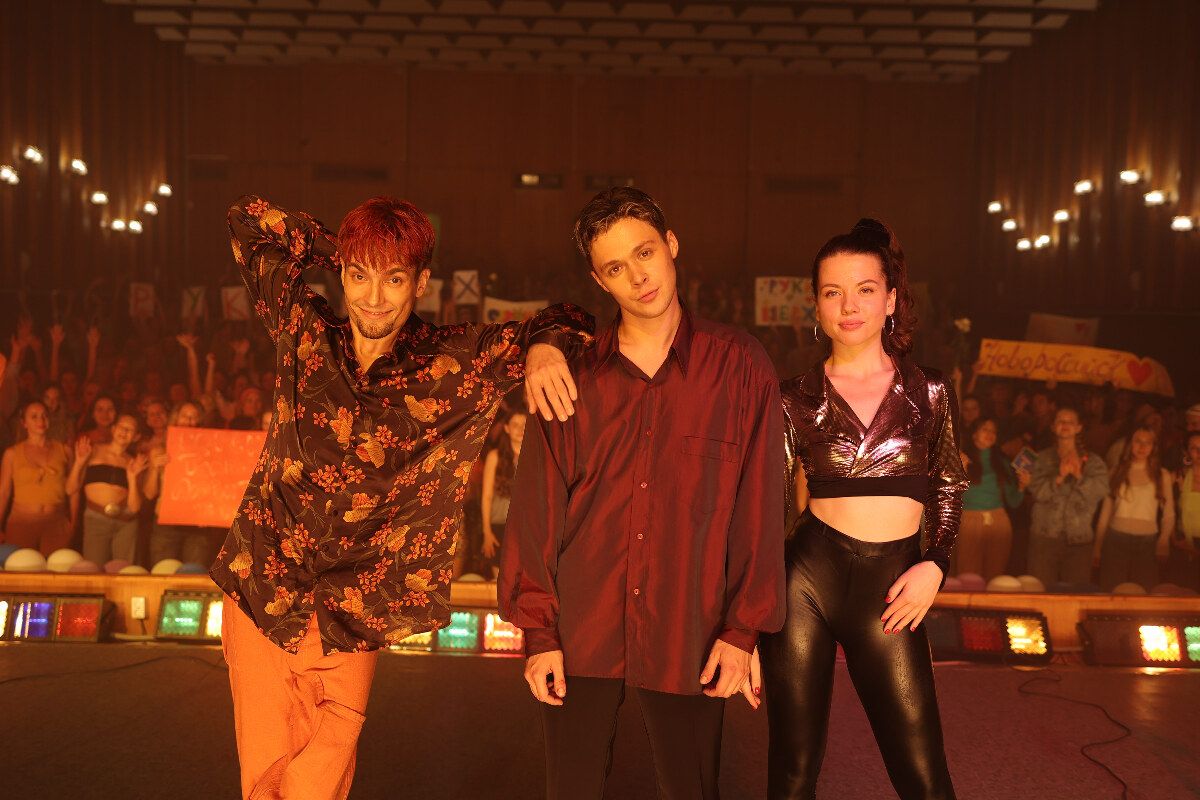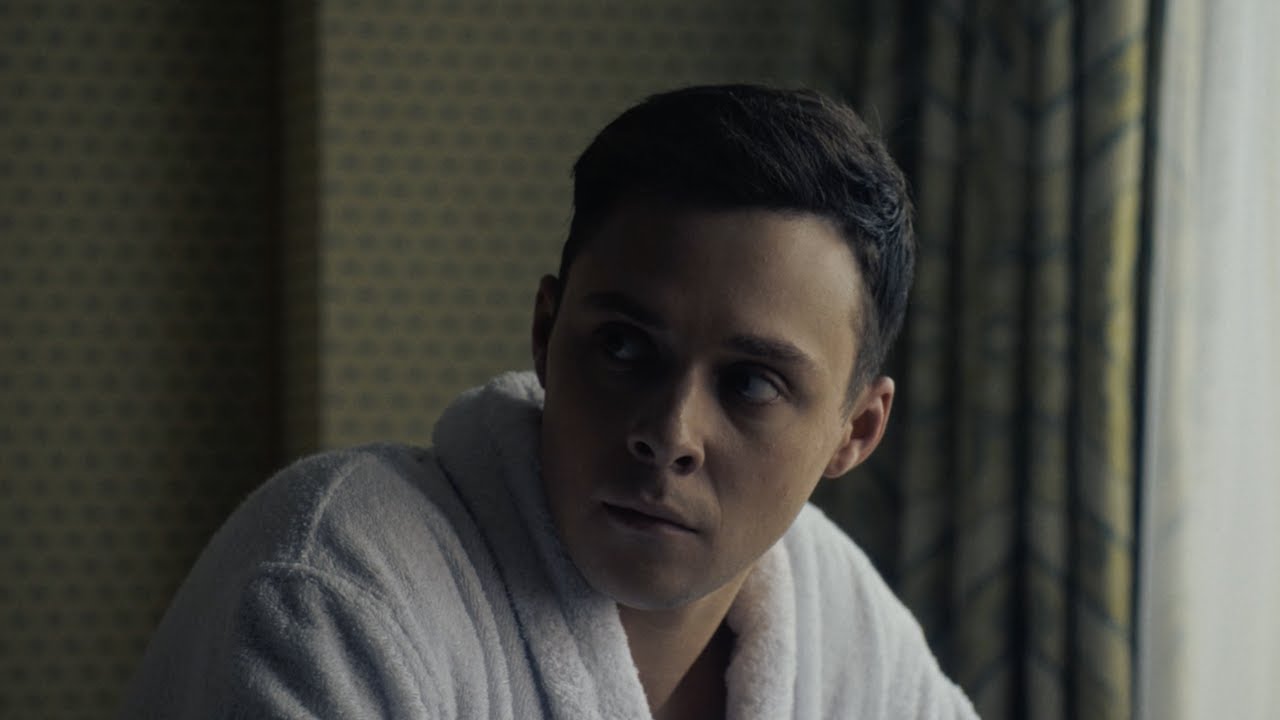On October 10, the premiere of the biopic of one of the most popular Russian groups of the 90s, “Hands Up!” took place. The film tells the story of how two young guys from the city, despite difficulties and difficult conditions, became idols of millions, leaving an unforgettable mark on pop culture.
After the success of such films as “Bohemian Rhapsody” about the group Queen and “Rocketman” about the life of Elton John, it was logical to expect something similar in the Russian segment. We went to the premiere and are ready to tell you that the real film has learned to live up to expectations and convey the spirit of the era, as well as how it differs from other famous films about the support of stars and their careers.
Review of the film “Bohemian Rhapsody”. Ticket to the best rock concert
The film is built in the form of memories of the growing up of Sergei Zhukov, who in 2018 ends up in the hospital with serious health problems. Lying in a hospital bed, the hero recalls his childhood, youth and rise to fame. This retrospective structure divides the film into episodes from the past, where the viewer meets the young Zhukov in Dimitrovgrad, and the present, in which the sick Zhukov reflects on the years he has lived.
And herein lies one of the main problems of the film. He is too positive, both the film and Sergei Zhukov. The film generally fails in its attempt to make a deep and engaging musical biography.
We decided to directly compare the story with the coolest biopics of our time – “Bohemian Rhapsody” and “Rocketman” and explain what’s wrong with the new film.
Brief description
A hero without inner demons and that’s a problem
There are almost no considerations here
Acting and lack thereof
Director’s vision without ideas, sorry
There’s a lot of music here, but it’s off topic
There’s a lot of nostalgia here, it’s cool
Emotional effect, or rather lack thereof
Watch for fans, viruses – depending on your mood
◦ Back to contents ◬
A hero without inner demons and that’s a problem

What is the film about?: the history of the cult group, whose success in the 90s became a symbol for an entire generation. The film tells the story of Sergei Zhukov’s journey from a simple provincial teenager to one of the most famous pop singers in Russia.
“Bohemian Rhapsody” tells the story of Queen with an emphasis on the personality of Freddie Mercury – a complex, contradictory and brilliant artist, torn by internal conflicts and external circumstances. Here Mercury is a cult hero who goes through a major journey towards self-acceptance.
“Rocketman” takes the viewer into the world of Elton John – from his first steps in music to his success in Europe. The story focuses on the singer’s confidence demons – depending on depression, the search for identity. The film is stylized as a musical fantasy musical, reflecting Elton’s unusual inner world.
“Hands up!” much more modest in concept and presentation. In the center of the plot is Sergei Zhukov – a charming, purposeful guy from the city who is not afraid to take. Unlike Mercury and John, Zhukov was portrayed without significant internal factors: he is almost an entirely positive hero, whose life goal was clear from the very beginning – to become a successful musician and please the publication. History pays more attention to the career rather than the personal aspects of Zhukov’s life.
The plot of the Internet through a series of flashbacks, which shows the formation of Zhukov as an artist. The story begins with his first hanging cabinets in Dimitrovgrad, his transition to working at a radio station in Samara, where he meets Alexei Potekhin, and ends with his move to Moscow, which marks the beginning of their musical journey. However, the film seems overwhelmed by the rapid succession of events, which makes the plot abrupt.

Although movies and trends show a difficult path to success, the structure of the script does not cope with this task: the characters move too quickly from one situation to another. For example, the moment Zhukov and Potekhin meet means a short interaction that takes away any insight into their unexpected friendship.
Freddie Mercury from Bohemian Rhapsody and Elton John from Rocketman represent outward transformation, going through moments of weakness and self-destruction that, in the traditional account, lead to a secondary degeneration. This creates the effect of dramatic catharsis for the viewer, emphasizing the personal strength and resilience of the characters.
Sergei Zhukov in “Hands Up!” There is a path to becoming, but its transformation rather concerns the growth of popularity and success, the achievement of internal work on oneself. There is almost no vulnerability visible in him, any dark sides that could add strength and create a multifaceted portrait of the hero. The hero’s personal and professional development does not receive proper dramatic support. He’s just good, period.
◦ Back to contents ◬
There are almost no considerations here

Overall, the script seems to be the film’s main weak link. It is too simplified and full of attractive, linear events. There is almost no developed conflict in the film that could hold attention throughout the entire film.
In Bohemian Rhapsody, Mercury’s internal conflict is the strongest element of the entire film, his struggle with loneliness, difficulties in expressing his sexuality and tense relationships with his bandmates. The conflict here is multi-layered: it affects both Freddie’s personal life and professional disagreement within the group.
The focus of “Rocketmen” is on Elton John’s region with its addiction and desire to achieve change and love. The film’s conflict is more psychological, with Elton’s personal struggles revealed through vibrant, emotional musical numbers that highlight his inner side.
In “Hands Up!” The main conflict manifests itself through external circumstances – pressure from producers, gangsterism in the 90s, financial difficulties. The heroes have practically no internal questions: Zhukov is presented as a person firmly moving towards his goal, with virtually no doubt in himself. This makes the film more superficial in terms of drama. The conflict, if you can call it that, pits the characters against the harsh realities of 1990s show business, but does not involve deep personal dramas.
The difficulties faced by characters such as devious producers and illnesses come through quite strongly in the air, which keeps tension to a minimum. I repeat, Zhukov is portrayed as a hero without flaws, creating an overly ideal picture, where dramatic moments are almost absent as such. Even the default of the 90s is treated quite leniently here.
◦ Back to contents ◬
Acting and lack thereof

The role of Sergei Zhukov in his youth was played by Vlad Prokhorov, who has the same open and cheerful charisma as his real prototype. He successfully conveys the character’s energy and determination, but his external dissimilarity with Zhukov still causes dissonance in the viewer.
Ilya Rus, with the embodiment of Potekhin, on the contrary, turned out to be as similar as possible to the real hero – both visually and in character. Another bright role of the performer Fyodor Lavrov as a producer, he was able to show both the harshness and cynicism of the character, this added realism to the film and at least a little drama and conflict.
However, Zhukov in adulthood, played by Sergei himself, and his wife Regina, who also appears in the video itself, look unconvincing on screen. Their acting skills are heavily modeled on professional actors and their moments are awkward. But the viewer sees a real, living Zhukov. The fans will be pleased.
◦ Back to contents ◬
Director’s vision without ideas, sorry

“Rocketman” uses a musical fantasy style where reality and fiction intertwine, highlighting Elton John’s unique perspective on life. Bright and memorable musical numbers are an important part of the story, a visual reflection of Eltona’s emotions and thoughts.
Bohemian Rhapsody is shot like a classic biopic with epic elements, balancing realism and emotion. One of the film’s best scenes is the final Live Aid concert, filmed as the climax of the film, emphasizing the unity of the group and the strength of Mercury.
“Hands up!” uses nostalgic flashbacks and shows events through a series of time jumps. The direction is more documentary and linear, so the film looks like a chronicle of events with outstanding artistic digressions. The concert scene at Luzhniki in the finale also becomes a key moment, but does not evoke such a strong emotional response as concert scenes in Western biopics. It turned out too bland.
And we’re still waiting for the Robbie Williams biopic starring a monkey! This is where the real creative and unexpected, albeit crazy, idea will be.
https://rutube.ru/video/9f9e5e53e3383a9abc556ac3c00a6bac/
◦ Back to contents ◬
There’s a lot of music here, but it’s off topic

“Bohemian Rhapsody” and “Rocketman” use full versions of the stars’ hits, turning them into parts of the plot and giving the viewer the opportunity to fully experience the magic of the musical heroes. The compositions reveal the inner emotions of the characters, making the musical numbers an important part of the story.
In “Hands Up!” music plays the role of a lantern. The songs include the bands in the film, but only sound parts, which does not allow the viewer to immerse themselves deeper into the atmosphere. The iconic hits were used by the group for a nostalgic atmosphere in Europe, but did not become part of the narrative about the guy’s inner life. This makes it feel like the music exists as a little fan service without leading to any dramatic development.
Despite the abundance of music, supporters of the group may feel that the film contains little of what they came for – songs that are heard only in fragments and not in their entirety.
◦ Back to contents ◬
There’s a lot of nostalgia here, it’s cool

The film masterfully conveys the aesthetics of the 90s, from interiors to costumes. In the frame of nature, the characteristic attributes of the time: bulky cassette recorders, VHS tapes, carpets on the walls, Soviet furniture, terry sweaters and tracksuits.
These creatures seem to be returning to the era of social networks and streaming, when music was listened to on cassette tapes and news was discussed in the kitchen.
The film shows popular fans, their excitement and willingness to wait for artists at the entrance, catch their autographs and store their posters. This passion and cult status of the group demonstrates the Hands Up! phenomenon. as part of the devotion to the nostalgia phenomenon, a reflection of the fanaticism of the 90s and early 2000s, when meeting an Idol and performing at an event was a rarity. Now you can hate him on his own page on the social network. In the 90s, I saw a star alive – it was already a success!
◦ Back to contents ◬
Emotional effect, or rather lack thereof

The endings of Bohemian Rhapsody and Rocketman are emotionally powerful as they lead the characters to the culmination of their internal struggles and professional success. These scenes become a kind of final feature, a stage in which the main characters express their emotional and personal maturation.
“Hands up!” The story ends with a concert at Luzhniki, symbolizing the success of Zhukov and his group. Although the ending conveys joy and pride, it leaves a less profound emotional impression because the path to this success was not revealed through the prism of the appearance of struggle. This makes the ending feel more like a celebration for fans than a conclusion to the musicians’ original story.
Attempting to condense nearly thirty years of biography into one hour and 40 minutes, the film is limited in its scope. Moments that could become the basis of plot points – such as meeting Potekhin or tension in the group – are presented only briefly. Because of this, the film feels more like a compilation of key moments than a full-fledged story about the development of the group. For example, in the film it is almost not clear what exactly happened to the breakup of the team for fans, and although this could be an intriguing moment.
◦ Back to contents ◬
Watch for fans, viruses – depending on your mood
Foreign hits perform in the depths of personal history in a region with regions of demons, self-discovery and self-discovery, which makes them vivid and memorable dramas.
“Hands Up!”, on the contrary, is a film about the path to success, shot in a more neutral, chronic form, where the hero’s personal drama is obscured, the main focus is on facts and events. This makes it closer to a light, nostalgic look at the band’s fans than a psychological drama that reveals the inner world of the main character.
For those expecting a more complex and honest biopic, this approach may seem reasonable.
Source: Iphones RU
I am a professional journalist and content creator with extensive experience writing for news websites. I currently work as an author at Gadget Onus, where I specialize in covering hot news topics. My written pieces have been published on some of the biggest media outlets around the world, including The Guardian and BBC News.










